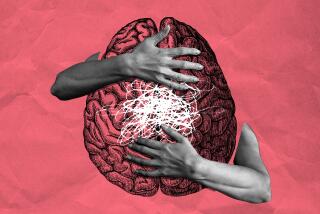Deepak Chopra walks the walk of spirituality
At age 6, Deepak Chopra experienced what he calls “an existential crisis.” His grandfather died, and Chopra became frightened when he overheard his uncle remark, “Yesterday he was playing with his grandchildren, and today he is a fistful of ashes.” His grandmother tried to comfort him by saying, “Grandfather is with God … in heaven.” But for Chopra, that day triggered enduring questions about death, heaven and the meaning of life.
Now 67, Chopra is a prolific writer, spiritual guide and a renowned physician who decades ago championed integrative medicine, a melding of mainstream, Western medicine with alternative treatments.
Chopra suggests a new melding, this time of science and faith, in his latest book, “The Future of God: A Practical Approach to Spirituality for Our Times.” He also discusses those ideas in a new public television show, “The Future of God.”
He advocates daily meditation — 20 minutes when you get up and 20 minutes in the afternoon. Chopra recently teamed up with Oprah Winfrey to offer online meditations (try one at lat.ms/1vBcESc).
What is the link between belief and biology?
There is a big link between what you hold to be true and what happens in your biology. [Your belief] changes the activity of your genes away from inflammation in the direction of self-regulation. … People who think that, as they age, they grow healthier and wiser, have more endurance and … we are showing, unequivocally, that meditation not only slows down the aging process but reverses some of the biology of aging. I personally believe your biological age can be 20 or 30 years younger than your chronological age, if you are physically fit, emotionally mature and not reactive [to people or situations].
What do you do to stay fit?
I walk about five miles [a day], and I do yoga. Once in a while I do weightlifting and strengthening, but I found that yoga achieves the same thing. So lately I’ve been doing yoga, meditation and I walk. When I’m in New York, I don’t take a cab, I walk. If I take the subway, I get off a couple of stations before I’m supposed to get off.
In your new book, “The Future of God,” you wrote about a “peak experience.” What is it?
Falling in love is a peak experience. Some people have them in sports, ballet, music, poetry, in meditation. Some people have them in a sexual encounter. … Peak experiences are the ones we never forget — the ones we long for once we’ve had them. … The beauty of the moment is breathtaking, and time stood still. … It is also called the “experience of flow” or the “lightness of being.” There is not a care in the world. There is a feeling of joy. … I start my day with four intentions. The first is joyful, energetic body. The second is loving, compassionate heart. The third is reflective, alert mind. The fourth is lightness of being. I am anticipating a peak experience by setting the intention.
Do you achieve peak experiences every day?
Yes, I do. I live in a state of joy and carefreeness. I can honestly say that I don’t have stress. And except in rare occasions in the past — when I was criticized by “militant atheists” and I reacted — I don’t normally get upset or angry. I don’t have arguments with my family — my wife or children. … I don’t regret my reaction to the “militant atheists” like [Richard] Dawkins. In fact, he inspired me to write this book.
What is the importance of “stillness”?
It’s a habit that you cultivate. Meditation is the first thing. I also observe myself making choices … and frequently that stops my reaction. I make sure that when I speak, I ask myself, “Is it necessary?” “Is it true?” “Is it kind?” “Will it make a difference?” Otherwise, I don’t speak. … When you start to observe yourself, which is basically self-awareness, you realize that a lot of what we do … creates unnecessary aggravation for ourselves and others.
::
Chopra’s musings on meditation and risk
Here are some thoughts from Deepak Chopra:
“If you can’t find time to meditate even once a day, then you probably should do it twice a day.”
“Your body does what [it] needs when you meditate. If you fall asleep, that’s definitely a sign of sleep deprivation … that you need more sleep.”
“People who are in the present moment will slow down the aging process.”
“We eat too much in our society. We eat processed, manufactured, contaminated foods — contaminated with chemicals, steroids, antibiotics and now GMOs.”
“Taking calculated risks makes life much more interesting and valuable. You don’t want to be at the end of your life and say, ‘I did the same thing for 80 years.’”
Nancy Lloyd has also talked to Lucy Liu and Michael Strahan about their fitness habits.






